Hydrogen Value Chain
Hydrogen is a key energy carrier in the envisaged Hydrogen Future. Future energy systems will find hydrogen to be a beneficial component due to its many advantages. It is a flexible, clean energy source.
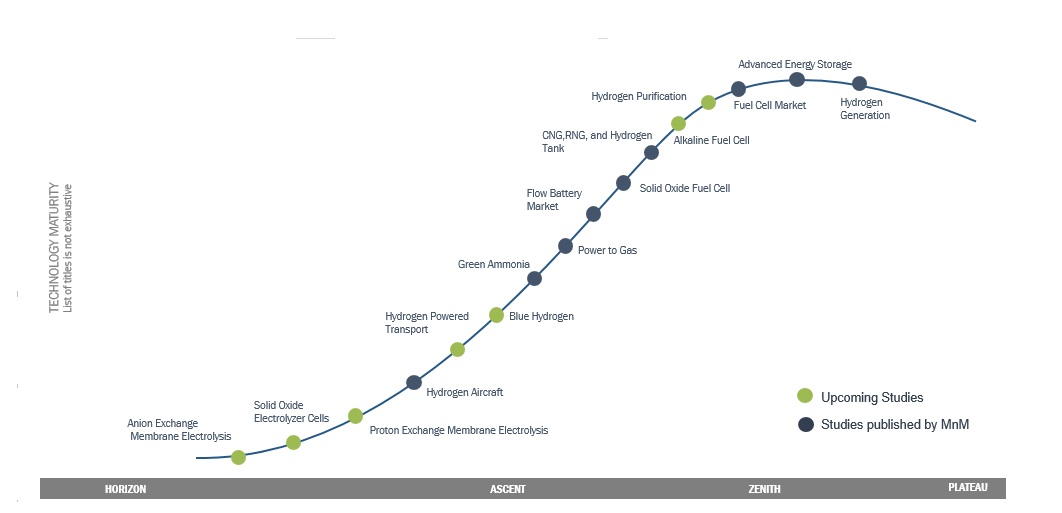
Hydrogen is a key energy carrier in the envisaged Hydrogen Future. Future energy systems will find hydrogen to be a beneficial component due to its many advantages. It is a flexible, clean energy source.
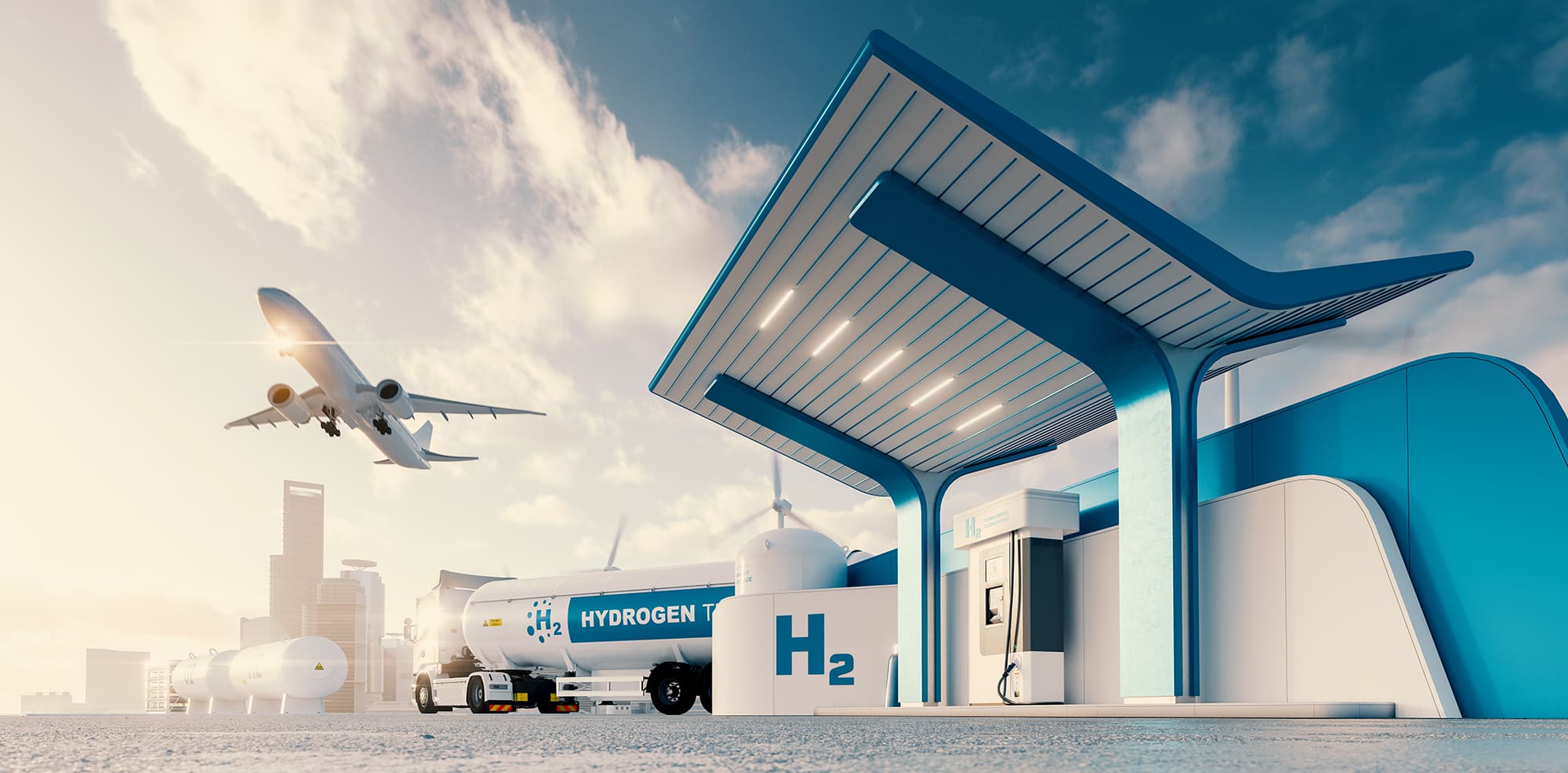
The usage of hydrogen vehicles as a means of cutting greenhouse gas emissions and switching to greener transportation systems is becoming more and more popular.
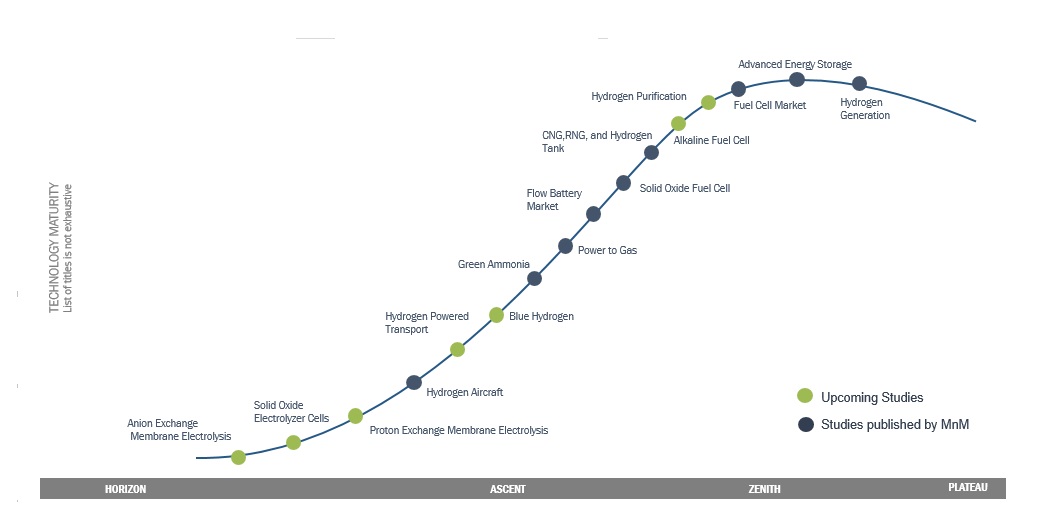
Hydrogen market penetration refers to the extent to which hydrogen is adopted and used as an energy source or feedstock in various industries and applications. Hydrogen has gained significant attention as a potential clean energy carrier and has the potential to play a crucial role in reducing greenhouse gas emissions, particularly in sectors that are challenging to decarbonize, such as transportation and heavy industry. The choice of whether to enter new markets directly or through partners is contingent upon several industry-specific considerations in the hydrogen sector.
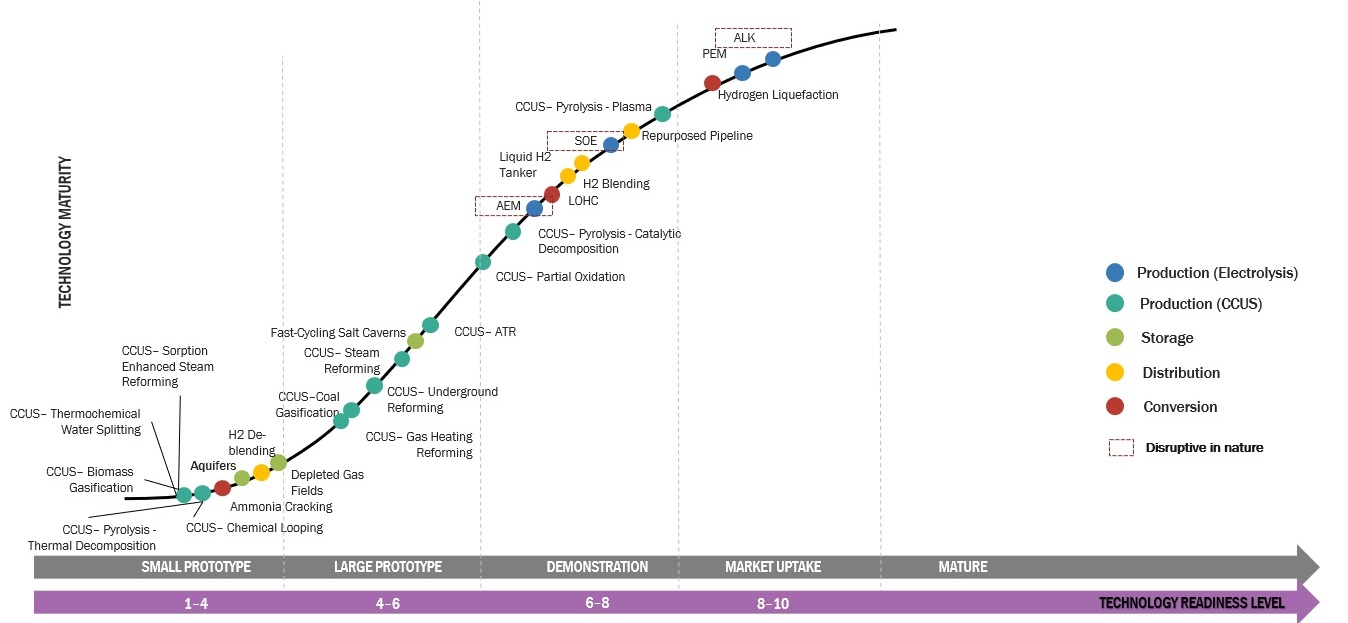
Application required energy density, safety requirements, and cost all influence the selection of hydrogen storage options. A key element of the hydrogen economy is hydrogen storage. Hydrogen must always be stored at high pressure and low temperature. It is also a solid material due to its low density and high flammability.
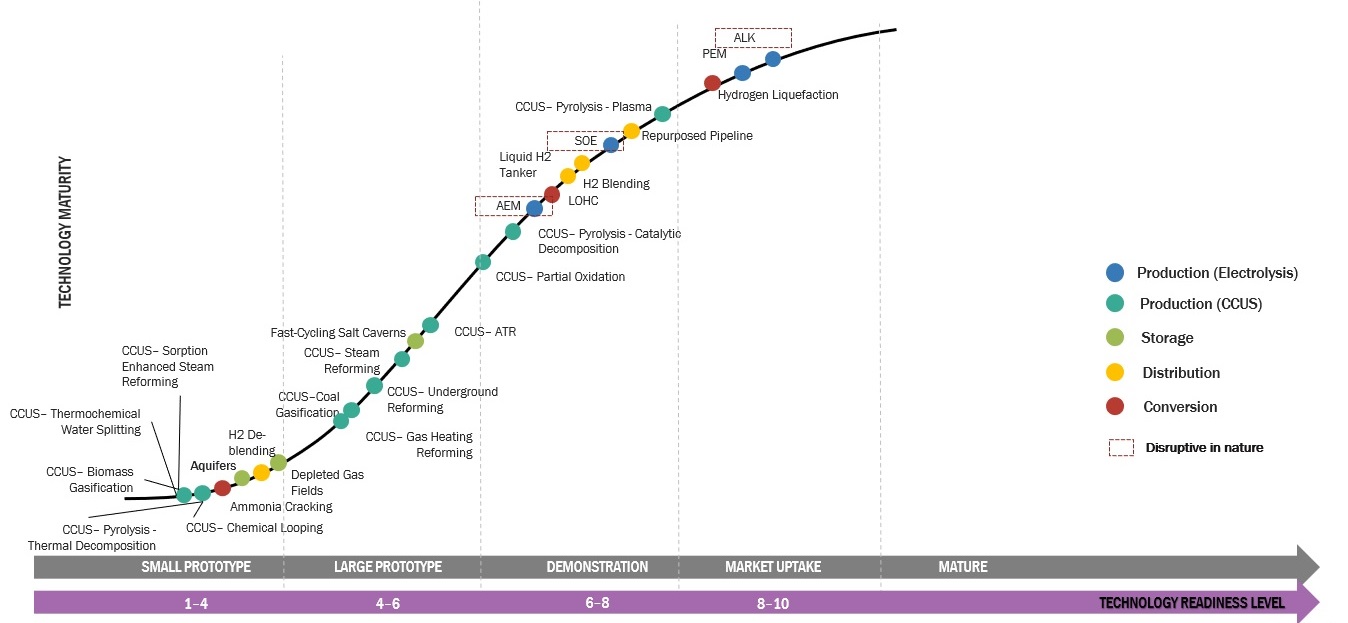
Hydrogen technologies encompass a range of technologies and processes that involve the production, storage, distribution, and utilization of hydrogen as an energy carrier. Hydrogen, as the most abundant element in the universe, can be harnessed and utilized in various forms to meet energy needs while minimizing environmental impacts.